Our kidneys are essential organs that play a crucial role in keeping the body balanced and healthy. They filter waste and toxins from the blood, help regulate blood pressure, and maintain proper fluid levels. Despite their importance, many people don’t pay much attention to their kidney health until issues begin to surface.
Maintaining strong kidney health doesn’t require complicated steps. In fact, there are simple, natural habits that can help support kidney function over time. Staying hydrated, eating a balanced diet, reducing salt intake, and exercising regularly are just a few ways to give your kidneys the care they need.
By making these healthy lifestyle choices part of your daily routine, you can protect your kidneys and reduce the risk of chronic issues. Small, consistent actions can lead to lasting benefits and ensure your kidneys continue to perform their vital roles. Prioritizing kidney health is a smart investment in your overall well-being.
Why Kidney Health Matters
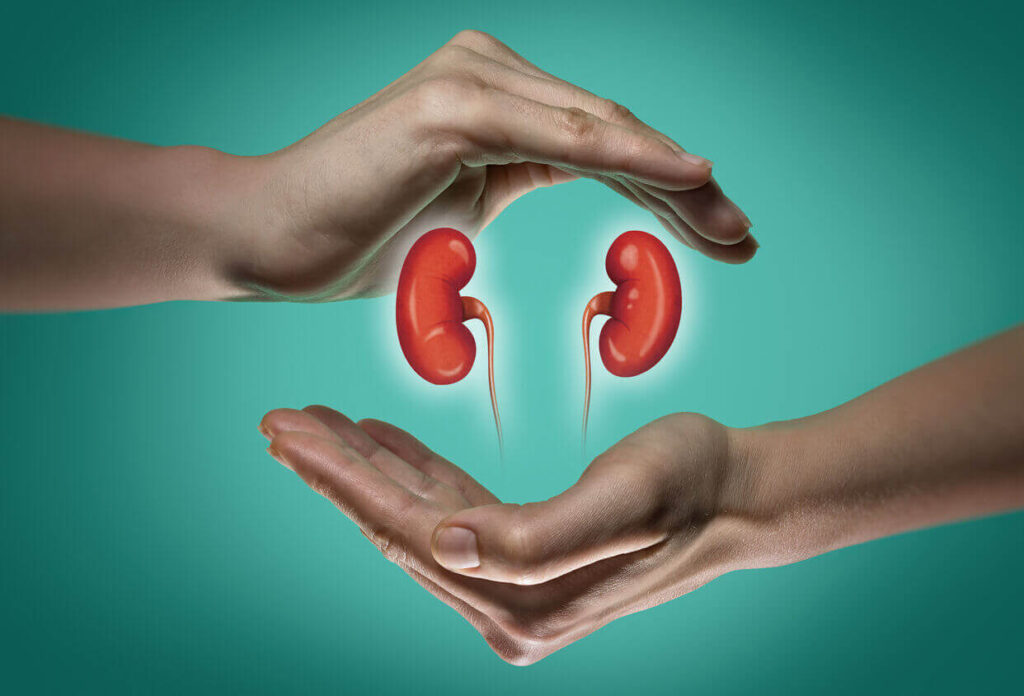
Kidney health matters because our kidneys are responsible for many critical functions that keep the body running smoothly. They filter waste, toxins, and excess fluids from the blood, which are then excreted as urine. Without this filtration process, harmful substances can build up in the body, leading to serious health problems.
Beyond waste removal, the kidneys also help regulate blood pressure, balance electrolyte levels, and support red blood cell production. When your kidneys aren’t working properly, it can affect your energy levels, heart health, and overall quality of life. Chronic kidney disease often develops silently, with symptoms appearing only after significant damage has occurred.
Protecting your kidney health through proper hydration, a balanced diet, and regular checkups is essential. Making these habits a part of your lifestyle can help prevent future issues and support long-term wellness. Healthy kidneys are the foundation of a healthy body, so giving them the care they need is a vital part of overall health management.
Filtering waste and excess fluids
Regulating electrolytes (sodium, potassium, calcium)
Producing hormones like erythropoietin (which stimulates red blood cell production)
Maintaining healthy bones and blood pressure
When kidney function declines, waste builds up in the body, leading to serious health complications, including high blood pressure, anemia, bone disease, and potentially kidney failure.
Understanding the Role of Kidneys
Each person has two kidneys, positioned on either side of the spine just below the rib cage. These bean-shaped organs are small but incredibly powerful, playing a key role in keeping the body balanced and healthy.
Every day, the kidneys filter roughly 50 gallons of blood to produce about 1.5 quarts of urine. This process helps remove waste, excess fluids, and toxins from the body, which is essential for maintaining good kidney health and overall wellness.
In addition to filtering blood, the kidneys work closely with other organs to support homeostasis—the body’s internal balance. They help regulate blood pressure, control electrolyte levels, and ensure the right amount of fluid is maintained. Taking care of your kidneys is crucial for long-term kidney health and proper body function.
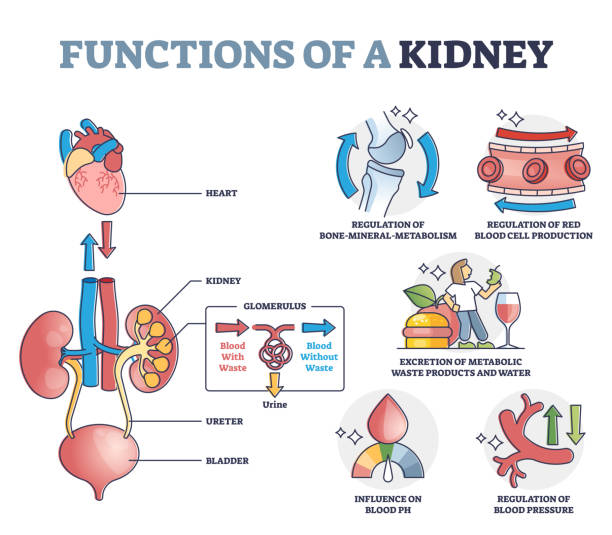
Main functions include:
Removing waste products from the bloodstream
Regulating fluid balance
Maintaining pH balance
Activating Vitamin D for bone health
Controlling blood pressure by releasing renin
Common Causes of Kidney Damage
Understanding what harms the kidneys is a crucial first step toward protecting them and maintaining strong kidney health. Many people are unaware that everyday habits and conditions can slowly damage these vital organs over time.
Some of the most common causes of kidney damage include uncontrolled high blood pressure, diabetes, and frequent use of over-the-counter painkillers. These factors can strain the kidneys, reduce their ability to filter waste, and eventually lead to chronic kidney disease.
Other risks to kidney health include dehydration, high-sodium diets, smoking, and excessive alcohol intake. By recognizing these harmful factors, you can make smarter choices that support your kidneys. Being informed is the foundation of prevention, and simple lifestyle adjustments can go a long way in protecting your long-term kidney health.
Common causes include:
High blood pressure
Diabetes
Chronic dehydration
Overuse of NSAIDs (non-steroidal anti-inflammatory drugs)
Excessive salt or protein intake
Smoking
Alcohol abuse
Obesity
Kidney infections or autoimmune disorders
Warning Signs of Kidney Issues
Early kidney disease often develops without noticeable symptoms, which is why regular checkups and attention to kidney health are so important. Many people may not realize their kidneys are under stress until significant damage has already occurred.
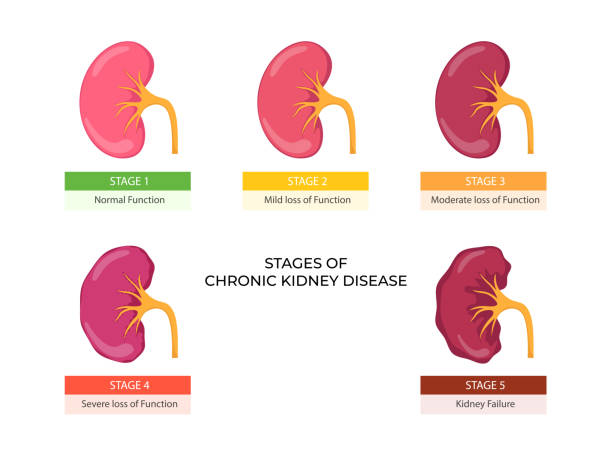
As kidney disease progresses, the body may begin to show warning signs. These can include fatigue, swelling in the ankles or feet, changes in urination, and difficulty concentrating. Such symptoms often appear gradually and may be mistaken for other health issues.
Recognizing these signs early can make a big difference in protecting kidney health. If you notice any unusual changes in your body, it’s important to speak with a healthcare professional. Early detection and treatment can help manage the condition and prevent further kidney damage.
Fatigue and weakness
Swelling in ankles, feet, or hands
Urine changes (color, frequency, or foaminess)
Shortness of breath
High blood pressure
Nausea or vomiting
Persistent itching
Metallic taste in the mouth
If you notice these symptoms, consult a healthcare provider promptly.
Top Natural Tips to Boost Kidney Health
Here are the most effective natural strategies to keep your kidneys in peak condition:
A. Stay Hydrated
Water plays a vital role in supporting kidney health. It helps the kidneys flush out toxins, waste products, and excess substances through urine, keeping the body clean and balanced. Staying well-hydrated allows the kidneys to function at their best.
When the body doesn’t get enough water, dehydration can occur. This makes it harder for the kidneys to remove waste efficiently and may cause a buildup of harmful substances in the body. Over time, this can lead to serious health problems.
Dehydration also increases the risk of kidney stones and urinary tract infections, both of which can impact kidney health. To keep your kidneys working properly, it’s important to drink enough water throughout the day. Even simple habits like sipping water regularly can go a long way in protecting your kidney health and overall well-being.
Tips:
Drink 8–10 glasses of water daily
Adjust intake during exercise or in hot climates
Monitor urine color (light yellow is ideal)
B. Eat Kidney-Friendly Foods
Some foods naturally support kidney function and help reduce the strain on these important organs. Choosing the right foods can make a big difference in maintaining good kidney health and preventing complications over time.
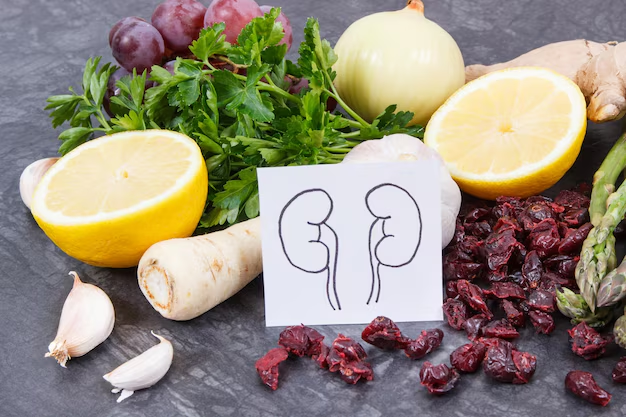
Fruits and vegetables low in potassium, such as apples, berries, and cabbage, are especially helpful for those concerned about kidney health. These foods are easier on the kidneys while still providing essential nutrients and antioxidants.
Limiting processed foods and salty snacks is also key, as too much sodium can increase blood pressure and stress the kidneys. By making smart dietary choices, you can protect your kidneys and support their ability to filter waste efficiently, contributing to better long-term kidney health.
Best foods:
Leafy greens (spinach, kale)
Red bell peppers
Cauliflower and cabbage
Apples and berries
Garlic and onions
Egg whites (low in phosphorus)
C. Limit Salt and Processed Foods
Eating too much sodium can have a serious impact on your kidney health. High sodium intake causes the body to retain more water, which can raise blood pressure over time. This puts extra strain on the blood vessels and the kidneys.
When blood pressure remains high, the kidneys must work harder to filter waste and maintain fluid balance. Over time, this added pressure can damage the tiny blood vessels in the kidneys and reduce their ability to function properly.
To protect kidney health, it’s important to limit sodium in your diet. Reducing salty snacks, processed foods, and fast foods can help lower blood pressure and ease the burden on your kidneys, supporting their long-term health and performance.
Tips:
Aim for less than 2,300 mg of sodium per day
Avoid fast food and packaged snacks
Use herbs and spices instead of salt
D. Manage Blood Sugar and Blood Pressure
Diabetes and hypertension are two of the leading causes of kidney failure, making it essential to manage both conditions to protect kidney health. If left unchecked, these conditions can cause significant damage to the kidneys, leading to chronic kidney disease.
Maintaining blood sugar levels within a healthy range is crucial for individuals with diabetes. Regular exercise, a balanced diet, and proper medication can help control blood sugar levels and prevent complications that affect kidney health.
Similarly, managing blood pressure is key to protecting kidney health. Eating a low-sodium diet, exercising regularly, and reducing stress can all help keep blood pressure in check. By staying on top of both diabetes and hypertension, you can reduce the risk of kidney failure and maintain healthy kidney function over time.
A balanced diet
Regular exercise
Medications as prescribed
Stress reduction techniques
E. Include Regular Physical Activity
Exercise offers numerous benefits for kidney health. It improves blood circulation, ensuring that the kidneys receive adequate oxygen and nutrients to function effectively. Better circulation also helps the kidneys filter waste more efficiently.
Regular physical activity is also effective in reducing blood pressure, which is crucial for maintaining kidney health. High blood pressure can damage kidney blood vessels, leading to impaired function. By exercising regularly, you can keep your blood pressure within a healthy range.
In addition, exercise helps control body weight, reducing the risk of obesity-related kidney issues. Maintaining a healthy weight lowers the chances of developing conditions like diabetes and hypertension, which are major risk factors for kidney disease. Prioritizing exercise is an excellent way to support your kidney health long-term.
Suggestions:
Brisk walking
Swimming
Yoga
Cycling
Aim for at least 150 minutes of moderate exercise per week.
F. Herbal Remedies for Kidney Health
Several herbs have been traditionally used to support kidney health, offering natural ways to boost kidney function. These herbs are believed to promote detoxification, reduce inflammation, and improve overall kidney performance.

Common herbs used for kidney health include dandelion root, nettle leaf, and turmeric, each known for its potential to aid in the body’s natural filtration processes. They may also help in reducing the burden on the kidneys by promoting healthy fluid balance.
However, it’s important to consult your doctor before using any herbal remedies, especially if you have existing health conditions or take medications. Your doctor can help ensure these herbs are safe and beneficial for your specific kidney health needs.
Beneficial herbs:
Dandelion root (diuretic and detoxifier)
Nettle leaf (anti-inflammatory)
Parsley (flushes excess fluids)
Ginger (anti-inflammatory)
Turmeric (protects kidney tissue)
G. Avoid Overuse of Painkillers
Frequent use of NSAIDs like ibuprofen or naproxen can harm kidney health over time. These medications can reduce blood flow to the kidneys, potentially leading to tissue damage and impaired function.
The risk is even greater when the body is dehydrated, as dehydration can further limit kidney function. Without enough fluid, the kidneys struggle to filter waste effectively, increasing the potential for harm.
To protect kidney health, it’s important to use NSAIDs sparingly and stay hydrated. If you need pain relief regularly, speak with your doctor about alternative options that are safer for your kidneys.
Tip: Use natural pain relief methods (heat therapy, acupuncture) and reserve NSAIDs for occasional use.
H. Maintain a Healthy Weight
Excess weight can significantly impact kidney health by increasing the risk of high blood pressure and diabetes. These conditions put extra strain on the kidneys, making it harder for them to function properly.
High blood pressure can damage kidney blood vessels, while diabetes can lead to kidney damage by affecting blood sugar control. Both conditions are major contributors to kidney disease.
Maintaining a healthy weight is essential for reducing the risk of these issues. By eating a balanced diet and staying active, you can help protect your kidney health and reduce the strain on these vital organs.
Strategies:
Follow a Mediterranean-style diet
Get regular physical activity
Avoid sugary beverages and excess carbs
I. Avoid Smoking and Limit Alcohol
Tobacco and excessive alcohol consumption can significantly harm kidney health. Smoking accelerates kidney decline by reducing blood flow to the organs and increasing the risk of high blood pressure, which damages kidney function over time.
Similarly, heavy alcohol use puts added stress on the kidneys, impairing their ability to filter waste and toxins effectively. It can also worsen chronic diseases such as diabetes and hypertension, which are already major threats to kidney health.
To protect kidney health, it’s important to limit or eliminate tobacco and alcohol use. Adopting a healthier lifestyle can reduce the risk of kidney damage and improve overall well-being.
J. Regular Medical Check-ups
Early detection of kidney dysfunction is crucial for protecting kidney health and preventing irreversible damage. Kidney disease often develops silently, with few noticeable symptoms in the early stages.
By catching kidney issues early, you can take proactive steps to manage the condition and prevent further harm. Regular checkups and monitoring are essential, especially for those at risk due to factors like diabetes or high blood pressure.
Early intervention can help slow the progression of kidney disease and maintain kidney function for longer. Prioritizing regular screenings and being aware of potential warning signs are key to preserving kidney health over time.
Tests to monitor:
Blood pressure
Blood creatinine and BUN
Urine albumin
Blood sugar levels
Get screened annually if you have risk factors like diabetes or a family history of kidney disease.
Foods That Cleanse and Protect the Kidneys
Some foods naturally support kidney health by helping the kidneys detoxify and eliminate waste more efficiently. These foods provide essential nutrients that aid in the body’s natural filtration processes.
Fruits and vegetables like cranberries, cucumbers, and bell peppers are known for their detoxifying properties, supporting kidney function and reducing the burden on these vital organs. They also provide antioxidants that protect the kidneys from oxidative stress.
Incorporating these detoxifying foods into your diet can help maintain healthy kidney function. By eating a variety of kidney-friendly foods, you can enhance the body’s ability to eliminate toxins and support long-term kidney health.
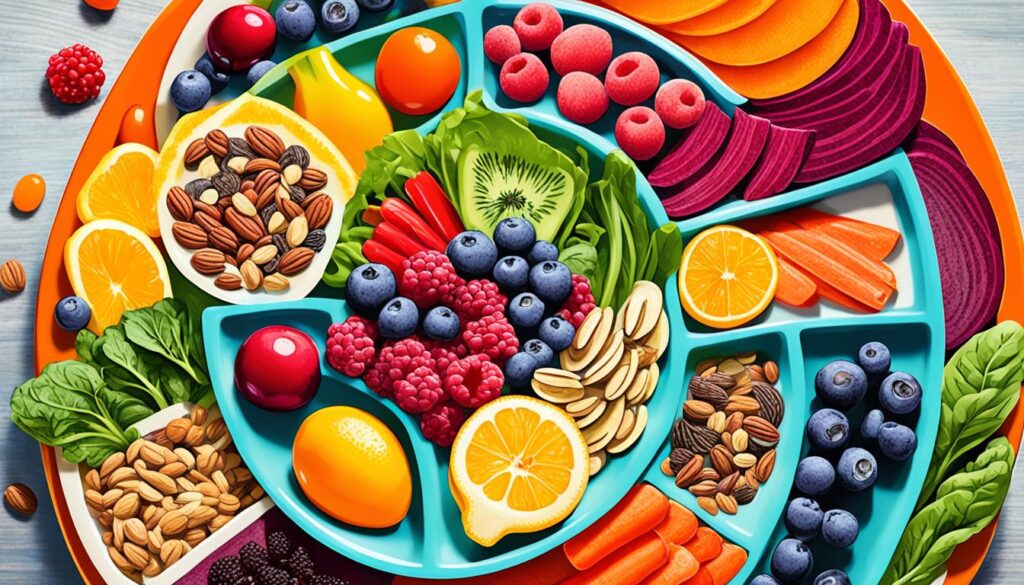
Top kidney-cleansing foods:
Cranberries: Prevent urinary tract infections
Blueberries: Antioxidant-rich and low in potassium
Apples: Fiber-rich and anti-inflammatory
Beets: Improve blood flow and detoxification
Watermelon: Hydrating and diuretic
Lemon juice: Prevents kidney stones
Include these regularly for added protection.
Habits to Avoid for Better Kidney Function
To keep your kidneys strong, steer clear of habits that tax them unnecessarily:
Overeating protein: Excess protein increases nitrogen waste
Chronic dehydration: Slows down kidney filtering process
Sleeping too little: Poor sleep harms kidney function over time
Ignoring urinary urges: Holding in urine can lead to infections
Excessive caffeine: Acts as a diuretic and may dehydrate
Conscious behavior makes a big difference in kidney preservation.
Natural Supplements That May Help
Some natural supplements may assist kidney function, particularly when used responsibly.
Potentially beneficial supplements:
CoQ10: Coenzyme Q10 (CoQ10) plays a vital role in supporting cellular energy production. It helps provide the energy necessary for proper kidney function and offers protective benefits to the kidneys by reducing oxidative stress. This antioxidant supports kidney health by preventing damage from harmful free radicals and enhancing overall kidney performance.
Omega-3 Fatty Acids: Omega-3 fatty acids, found in foods like fish and flaxseeds, help control inflammation and regulate blood pressure. By reducing inflammation in the body, omega-3s can help protect the kidneys from damage caused by chronic conditions like hypertension, which is a major risk factor for kidney disease. Maintaining healthy blood pressure also alleviates stress on the kidneys.
Vitamin B-Complex: The B-complex vitamins are essential for maintaining energy levels and supporting red blood cell production. These vitamins, including B6, B12, and folic acid, play a crucial role in cellular processes, ensuring that the body operates efficiently. For kidney health, they help prevent anemia and contribute to overall energy production, supporting kidney function.
Magnesium: Magnesium is an essential mineral that plays a significant role in reducing the risk of kidney stones. It helps prevent the formation of these painful stones by regulating calcium levels in the body. Magnesium also supports healthy kidney function by maintaining fluid balance and supporting muscle and nerve function.
N-Acetylcysteine (NAC): N-Acetylcysteine (NAC) is a powerful antioxidant that helps neutralize free radicals in the body. It supports kidney health by reducing oxidative stress and inflammation, protecting kidney tissues from damage. NAC also helps replenish glutathione, a critical antioxidant in the body, further enhancing kidney protection and function.
Caution: Always consult a healthcare provider before starting any supplement, especially if you have pre-existing kidney disease.
Conclusion: Building a Kidney-Friendly Lifestyle
Caring for your kidneys doesn’t require drastic changes—just consistent, health-conscious habits. Simple actions like staying hydrated and maintaining a plant-rich, low-sodium diet can go a long way in supporting kidney health. These small adjustments help your kidneys function efficiently by reducing stress and promoting proper fluid balance.
Avoiding harmful habits, such as smoking and excessive alcohol consumption, also plays a critical role in kidney health. These behaviors can damage kidney tissue and contribute to conditions like high blood pressure, which strain kidney function. By making healthier lifestyle choices, you can minimize the risk of kidney disease and improve your overall well-being.
Regular check-ups are essential for monitoring kidney health and detecting any potential issues early. Prevention is always easier and more cost-effective than treatment, so take proactive steps now. Start by including just one or two of these simple habits, and your kidneys will thank you for years to come.
FAQs
- Can kidney function be improved naturally without medication ?
Answer: In the early stages of kidney dysfunction, adopting a healthy lifestyle—like staying hydrated, eating a low-sodium diet, managing blood sugar and blood pressure, and avoiding toxins—can help improve or stabilize kidney function. However, advanced kidney disease often requires medical treatment, so early intervention is key. - Is it true that lemon water helps prevent kidney stones ?
Answer: Yes, lemon water contains citrate, a natural compound that can help prevent calcium kidney stones from forming. Drinking lemon water regularly, especially in place of sugary drinks, can aid kidney health by staying hydrated and reducing stone risk. - What role does exercise play in kidney health ?
Answer: Regular exercise improves blood circulation, reduces inflammation, supports healthy weight, and helps control blood pressure and blood sugar—all of which are critical for preventing kidney disease. Just 30 minutes of moderate activity 5 days a week can make a significant difference. - Should I avoid all high-potassium foods to protect my kidneys ?
Answer: Not necessarily. Potassium-rich foods like bananas, avocados, and spinach are healthy for most people. However, if you have chronic kidney disease (CKD), your doctor may advise you to limit potassium to avoid complications. Always consult a healthcare provider before making dietary restrictions. - How can I tell if my kidneys are healthy ?
Answer: Routine blood and urine tests are the best way to assess kidney health. These include checking your creatinine level, glomerular filtration rate (GFR), blood urea nitrogen (BUN), and urine protein levels. Regular screenings are especially important if you have risk factors like diabetes or high blood pressure.

